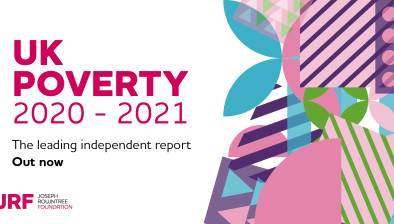‘Damning’ evidence on causes of poverty points to ‘growing class divide’ in housing
 A think-tank and advocacy group has called for a “complete overhaul” of the Scottish Government’s approach to housing after “damning” findings revealed that rising housing costs for the poorest Scots since devolution has become a key impediment to reducing poverty.
A think-tank and advocacy group has called for a “complete overhaul” of the Scottish Government’s approach to housing after “damning” findings revealed that rising housing costs for the poorest Scots since devolution has become a key impediment to reducing poverty.
The Joseph Rowntree Foundation’s new Poverty in Scotland 2017 report has revealed reductions in poverty over the past two decades is in danger of “unravelling” due to rising housing costs, stagnant wages and welfare cuts.
Since Scotland voted for devolution 20 years ago, the cost of housing for the poorest fifth of Scots has risen significantly, with those paying more than one-third of their income on housing costs increasing from 24 to 37% in that time.
That increase in the burden of housing costs for those on low incomes compares badly with England, which used to be more unaffordable than Scotland but is now level-pegging - the same figures south of the border are 30 to 37%.
Meanwhile the burden of housing costs for middle and upper income households in Scotland has remained stagnant and at a low level over the same period, as the JRF graph below shows.
 Commenting on the findings, Common Weal head of policy Ben Wray, said: “These findings are really damning for the Scottish Parliament, which across successive governments since devolution began has claimed the social justice mantle but has failed the poorest Scots on housing.
Commenting on the findings, Common Weal head of policy Ben Wray, said: “These findings are really damning for the Scottish Parliament, which across successive governments since devolution began has claimed the social justice mantle but has failed the poorest Scots on housing.
“We can lament the UK government’s failure to raise wages and their barbaric cuts to social security, but housing has been something that has been within the Scottish Parliament’s power to change and it is an indictment that over the past 20 years the problem of housing costs pushing Scots into poverty has continually increased in severity.
“Our record is so bad that we have went from housing costs being less of a burden on the poorest in Scotland than England 20 years ago, to matching England today.
“It is impossible to avoid the growing class divide in housing: while the poorest Scots have seen costs continually rising, those on middle and high incomes have experienced little change over the past 20 years, with the burden of housing costs remaining low.
“A complete overhaul is needed of the Scottish Government’s approach to housing. It is no longer tenable to claim that you want affordable housing without confronting rising house prices and the growth of the private rented sector. Affordability is not possible without tackling inequality.
“Three policy measures would be a good start: stop subsidising property developers to build for rent and instead expand investment in public housing; get rid of the council tax and introduce a property/land tax that acts as a disincentive on investment in property for speculation and reduces land values; and set-up a proper system of rent controls which ensures the cost of rents are affordable for everyone.”








